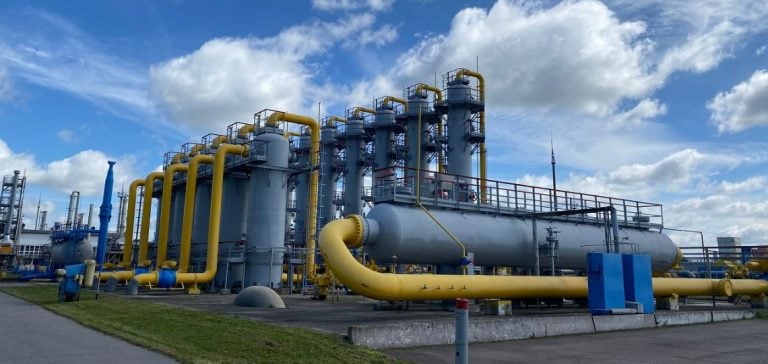Ukraine is preparing for winter by targeting a stockpile of 13.2 billion cubic meters (Gm³) of gas by November 1.
However, according to the International Energy Agency (IEA), the country may need to import a further 0.6 Gm³ to reach this crucial target.
The context is marked by geopolitical tensions and severe economic constraints. Ukraine has already stored around 11.7 Gm³ of gas as of September 16, mainly from domestic production, but current reserves are not sufficient to cope with more severe winter conditions.
The IEA states that, under normal weather conditions, Ukraine could meet its energy needs from local production and stocks.
However, a colder-than-expected winter could lead to an increase in gas consumption, particularly for domestic heating, necessitating further imports.
Such a situation poses a major financial and logistical challenge for Ukraine.
International support and import costs
Ukraine cannot afford to delay its gas imports, as the cost of these purchases could amount to more than 250 million euros for the missing 0.6 Gm³.
These estimates are based on spot prices on the European market at the beginning of September.
The support of international partners is therefore essential to avoid an energy deficit this winter.
The IEA is calling for the mobilization of funds via loans or grants to ensure that Ukraine can meet its storage targets.
The role of the European Bank for Reconstruction and Development (EBRD) is proving decisive.
In November 2023, it granted Ukraine a 200 million euro loan to support the creation of strategic reserves.
In July 2024, an agreement on guarantees was signed, and Naftogaz began purchasing gas with this loan in August 2024.
However, this international support remains fragile in the face of geopolitical uncertainties that continue to affect the country’s imports and energy security.
End of Russian gas transit: a new challenge for Ukraine
One of the major issues for Ukraine is the end of Russian gas transit through its territory, scheduled for January 2025.
At present, Ukraine benefits from the virtual reverse flow mechanism, which retains part of the Russian gas transiting to Europe.
Once this agreement expires, the country will have to turn to direct physical imports from the European Union, which will increase costs due to transmission tariffs.
This structural change in gas flows could increase Ukraine’s energy vulnerability in the long term.
The IEA also points out that import capacity from the European Union, estimated at around 60 million cubic meters per day, is not totally reliable over the long term.
Some of these capacities are not guaranteed due to the variable nature of supply contracts.
Ukraine and its European partners will therefore have to work to reinforce these capacities to ensure stable supplies in the coming winters.
Geopolitical risks and energy infrastructures
Risks to Ukraine’s energy security are heightened by Russia’s repeated attacks on its gas infrastructure.
Damage caused by these attacks could limit Ukraine’s ability to import and distribute gas efficiently this winter.
The IEA warns that these risks, coupled with the end of virtual reverse flows, make cooperation with the European Union essential to guarantee stable and secure imports.
At the same time, Ukraine is pursuing its strategy of reducing imports to become self-sufficient in gas.
However, this ambition is being undermined by high gas prices on the European market, forcing the country to maintain a balance between domestic production and imports.
The AggregateEU joint purchasing mechanism set up by the European Union could prove useful in centralizing Ukrainian gas purchases, thereby reducing costs.
An uncertain energy situation
Ukraine’s energy system remains fragile, and the outlook for the coming winter is uncertain.
Although Ukraine has made progress in building up its gas reserves, the country remains dependent on imports and on the evolution of geopolitical tensions with Russia.
Cooperation with the European Union and international financial support will be key to avoiding a major energy crisis this winter.






















